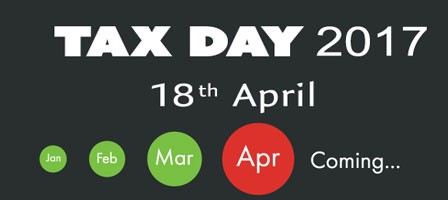10 Facts About the Pass-Through Deduction for Qualified Business Income
- Find out how to qualify for the pass-through or QBI deduction.
- Discover the two components of this deduction.
- Learn which trades or businesses qualify for this deduction.
- Find out which trades or businesses qualify as SSTBs and how SSTBs can still qualify for the pass-through deduction.
- Discover the threshold amounts to qualify for this deduction and how limits phase-in.
Are you eligible to take the deduction for qualified business income (QBI)? Fiducial has 10 facts about this valuable tax break, referred to as the pass-through, QBI, or Section 199A deduction.

10 facts about the pass-through deduction for QBI
- The pass-through deduction is available to owners of sole proprietorships, single-member limited liability companies (LLCs), partnerships, and S corporations. Trusts and estates may also claim it.
- Congress intended the pass-through deduction to reduce the tax rate on QBI to a rate closer to the corporate tax rate.
- You will take this deduction below the line. This means it reduces your taxable income but not your adjusted gross income. But it’s available regardless of whether you itemize deductions or take the standard deduction.
- The pass-through deduction has two components: 20% of QBI from a domestic business operated as a sole proprietorship or through a partnership, S corporation, trust, or estate; and 20% of the taxpayer’s combined qualified real estate investment trust (REIT) dividends and qualified publicly traded partnership income.
- QBI is the net amount of a taxpayer’s qualified items of income, gain, deduction, and loss relating to any qualified trade or business. Items of income, gain, deduction, and loss are qualified to the extent they’re effectively connected with the conduct of a trade or business in the U.S. and included in computing taxable income.
- QBI doesn’t necessarily equal the net profit or loss from a business, even if it’s a qualified trade or business. In addition to the profit or loss from Schedule C, you must adjust QBI by certain other gain or deduction items related to the business.
- A qualified trade or business is any trade or business other than a specified service trade or business (SSTB). But an SSTB is treated as a qualified trade or business for taxpayers whose taxable income is under a threshold amount.
- SSTBs include health, law, accounting, actuarial science, certain performing arts, consulting, athletics, financial services, brokerage services, investment, trading, dealing securities, and any trade or business where the principal asset is the reputation or skill of its employees or owners.
- There are limits based on W-2 wages. Inflation-adjusted threshold amounts also apply for purposes of applying the SSTB rules. For tax years beginning in 2021, the threshold amounts are $164,900 for singles and heads of household; $164,925 for married filing separately; and $329,800 for married filing jointly. The limits phase in over a $50,000 range ($100,000 for a joint return). This means that the pass-through deduction reduces ratably, so that by the time you reach the top of the range ($214,900 for singles and heads of household; $214,925 for married filing separately; and $429,800 for married filing jointly) the deduction is zero for income from an SSTB.
- For businesses conducted as a partnership or S corporation, the pass-through deduction is calculated at the partner or shareholder level.
As you can see, this substantial deduction is complex, especially if your taxable income exceeds the thresholds discussed above. Other rules also apply. Have questions about your situation? Call Fiducial at 1-866-FIDUCIAL or make an appointment at one of our office locations to discuss your situation.
Ready to book an appointment now? Click here. Know someone who might need our services? We love referrals!
For more small business COVID-19 resources, visit Fiducial’s Coronavirus Update Center to find information on SBA loans, tax updates, the Paycheck Protection Program, paid sick and family leave, and more.









